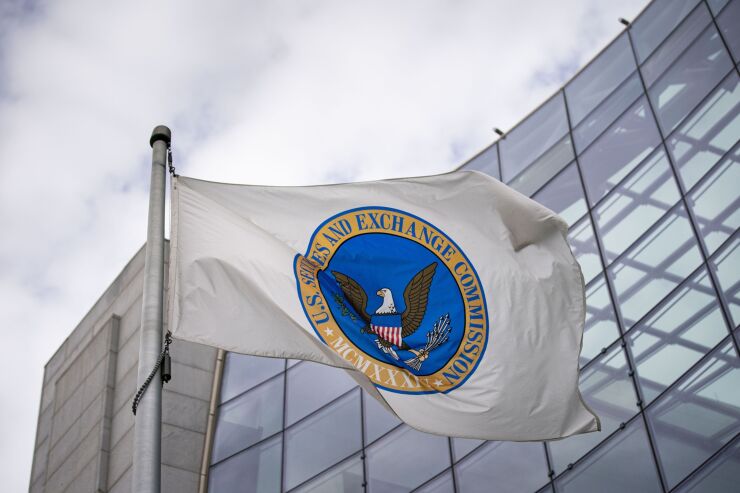SEC exams to focus on MAs, T+1 settlement cycle in FY 2025
2 min read

The Securities and Exchange Commission’s Examination Division will take a closer look at municipal advisors, specifically non-solicitor municipal advisors in FY 2025, and will begin enforcing the move to a T+1 settlement cycle.
That comes on the backs of the Commission’s
The Commission will also begin enforcing the move to a T+1 settlement cycle, following the switch in May. The priorities don’t mention the MSRB Rules G-12 on uniform practices and G-15 on confirmation, clearance and settlement; the MSRB’s rules intended to bring the municipal securities market in line with the changes the SEC brought on equities.
“The Division will evaluate broker-dealer compliance with Rule 15c6-1 under the Exchange Act, which reduced the standard settlement cycle for most securities to the day after trade date (T+1), and with Rule 15c6-2 under the Exchange Act, which requires broker-dealers engaging in the allocation, confirmation, or affirmation process to have written agreements or written procedures reasonably designed to ensure completion of the process as soon as practicable and no later than the end of day on trade date (T+0).”
The SEC will also begin looking at advisors’ amended books and records in accordance with T+1 and will considers “operational changes, or impacts related to adviser facilitation of institutional transactions that are involved in the allocation, confirmation, or affirmation processes subject to Rule 15c6-2(a),” the SEC said. “In addition, examinations will assess registrant technology changes associated with shortening of the settlement cycle and evaluate any areas that need further attention and resources, such as specific products or counterparties that are routinely not settling within the required time frames.”
The Commission will also continue to look at some of the emerging technologies of the day, such as artificial intelligence, AI capabilities and assess the accuracy of AI use.
“As technology continues to transform investing, we must work to identify new and emerging risks,” the SEC said. “The Division must constantly scan the horizon and stand ready to examine registered firms for compliance with SEC rules tied to these risks.”





